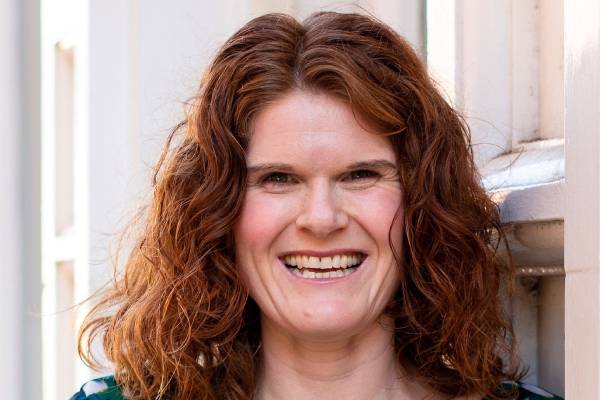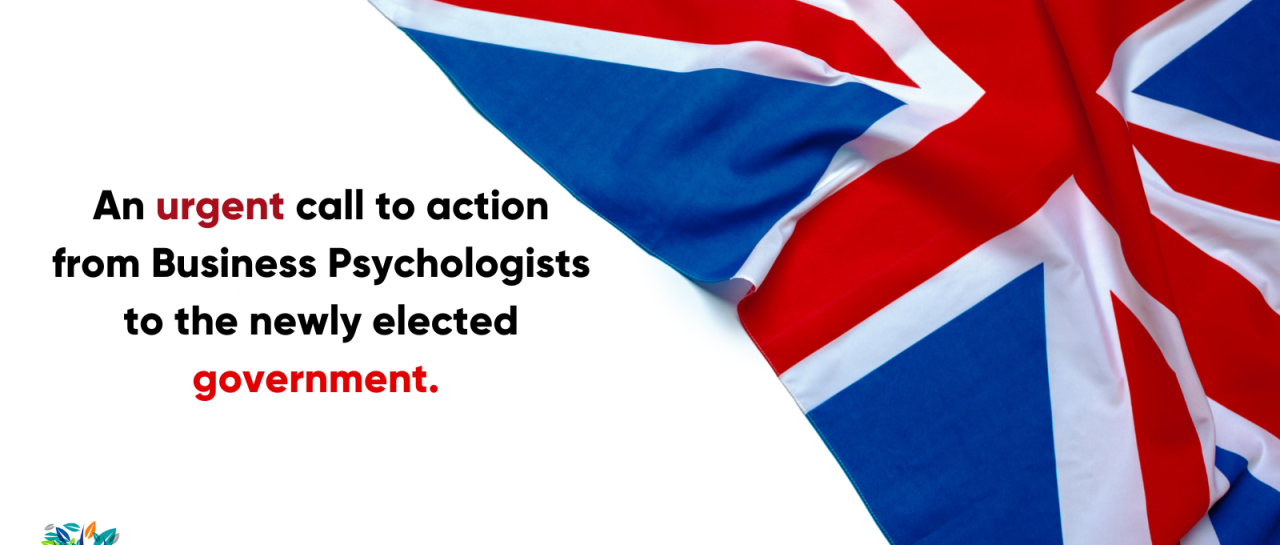Authored by Certified Business Psychologist Laura Howard. Certified Business Psychologist, Laura Howard, reflects on the webinar she recently delivered to ABP members. Below she outlines the main findings of her published research uncovering systematic barriers women face when being authentic as leaders. Importantly, she gives…

Brian Woodhead, former Customer Services Director, London Underground
Ben Renshaw, Leadership Consultant
Jess Fraser, Arup
Kathryn de Kort, Arup
The presentation began with a rather disconcerting but powerful reflection on the mindsets of the presenters: they were each asked to indicate what kind of day they had had, their role in the organisation during the project, how they felt and how inspired they were at that moment. As you would expect, the results were largely positive, but this was not the point: it was to illustrate that in order to be an inspirational leaders it is important to communicate transparently in order to instil the trust and confidence of others and this was an example of a simple check-in tool they use at the beginning of each session to help the leaders they work with to openly and authentically connect with their peers about how they are feeling. All the presenters were clear about their roles and the contributions they made and indeed continue to make as the project has been extended.
Jess Fraser emphasised the importance of this by linking good leadership to better engagement which generates excellence in customer experience and how building trust is so crucial. Kathryn de Kort built on this by highlighting the need for employees to be clear about their roles and to maximise how to plays to their strengths.
The purpose of this session was to use the London Underground Customer Service case study to demonstrate the reasons for investing in leaders on order to influence Customer Service. This included the qualities that can emerge from improved leadership, and how this can affect the performance of an organisation. At the centre of this improvement was a focus on mindset.
Brian Woodhead opened the session by describing his vision for the leadership development work designed and delivered by Ben Renshaw, Jess and Kathryn. Upon joining the organisation in 2016, he noticed an inconsistency in the leadership approach across the Customer Service directorate: many people had been doing the same job for years and were disengaged. Some of the factors Brian sought to address were:
- Leaders spending high proportions of their time worried about issues over which they had little or no control.
- A lack of “curiosity” in how things might be done differently
- The absence of time or incentive to reflect, meaning that staff could not always easily see or articulate their contribution to the organisation.
From the outset Brian recognised the magnitude of the transformation required and that it would be impossible to deliver this on his own. Ben, Jess and Kathryn partnered up with Brian to focus on developing leaders who had a shared send of purpose and used this to inspire their teams to deliver excellent customer service, clearly articulating the role everyone had to play in achieving success.
The investment in leadership development was designed to impact the three levels of leadership within Customer Services:
- HoCS (20 Head of Customer Services and their Business Partners)
- AMs (100 Area Managers)
- CSMs (850 Customer Service Managers)
With 6500 people reporting into this structure, the first three months of facilitated workshops that were ran with each of the leadership teams within this structure were the most challenging. This challenge was because leaders were hesitant to engage in a new approach for fear about what the purpose of the leadership programme was. A breakthrough moment was when the leader, manager, coach model was used to highlight the different strengths required to effectively lead teams London Underground with a clear link between this model and the work being covered by the leadership programme. It took 12 -18 months to build the trust to such a level that leaders truly understood the importance of mindset wanting to then invest in their own team’s leadership development and promote the power of mindset at all levels. Brian summarised the delivery approach taken with the wonderfully crafted phrase that summarised their success; the need to “Rush Carefully”.
With the scene set, Ben Renshaw went on to explain how they used the vision of Psychologist Viktor Frankl who sealed his fame in perpetuity identifying the last ultimate freedom, which is our ability to choose our response to the threats from others. Linked to this, Ben introduced his distinction between human “doing” and human “being”, reflecting the ease by which leaders get drawn into ‘doing’ rather than focussing on how they want to be, the ways they show up and inspire as a leader. A leader’s way of ‘being’ influences the choices they make and ultimately impacts on their ability to engage their teams.
For Jess, the project was particularly exciting in that it proved to be the crossroads where Theory and Research hit reality. Leadership capabilities could be developed on the back of existing and intact teams, and it was possible to observe the transformation of these teams. One of the areas explored during the presentation was the “inspiration gap” that afflicts most leaders to a greater or lesser extent and what this case study shows is the importance in reducing this gap to increase levels of engagement. In the case of LU, the approach to “inspiration” was taken around uniting people around a common “Mindset”, while at the same time respecting the rights and desires of people to make choices in their daily lives.
To land the power of mindset, a foundation of trust had to be built with each of the leadership teams within the programme. Ben cited Harvard Professor Amy Edmondson’s work on Psychological Safety, where people could make mistakes without fear of negative consequences. This struck a chord with leaders at LU who understood the importance of psychological safety within their own teams and was embedded by ‘rushing carefully’ and the routine use of the check-in tool in each session to build connection and authenticity which strengthened the psychological safety of each team.
Ben explained that the key reason why this approach worked was that Brian dismantled the traditional hierarchy, did not hand down judgment and was prepared to “tell his story” in an authentic way about what works and what doesn’t. Work became decodified with over-optimism and the consequences of false positivity being replaced by emotional intelligence, authentic leadership, and empowered staff. It was this authenticity and the foundations of trust established in the first 18 months of the programme that helped make the transition from in-person to virtual seamless after Covid-19 changed the delivery model. Jess spoke about the process of adaption and the fact that the hybrid model works so effectively that it is here to stay.
Kathryn spoke about the role of data and evaluation in their work as a means of monitoring whether the intended outcomes were being met – were people more engaged at work? Did teams feel more connected and empowered? Was customer service changing on stations? Throughout the project, the team used Kirkpatrick’s 4 level evaluation framework to structure the data they collected. This included post session reaction surveys, interviews to draw out applied learnings, 360 assessments to identify behavioural change and actively monitoring relevant organisational data to determine wider change. The key marker of success for the programme is reflected within TfL’s annual engagement survey data – with total engagement of the Area Manager leadership cohort significantly increasing from 65% in 2018 to 75% in 2020 with higher engagement than the average team/group in the organisation.
Having shared their case study, Brian, Ben, Jess and Kathryn opened to a discussion with this audience. This was a powerful and insightful conversation with a healthy does of query and challenge from attendees who wanted to explore the concepts of mindset and authentic leadership more which evolved into a fruitful discussion which kept everyone engaged.
Reflecting on the work done by the team, it was clear that at the centre of their work lay the question ‘How can we help leaders become a better version of themselves?’. By focussing on leaders’ strengths, Ben, Jess and Kathryn established a leadership framework that emphasised how leaders show up and the mindset they adopt, a concept which can be implemented by leaders every day.
In conclusion, the project has been successful because it delivers inspiration, high levels of trust, increased collaboration, and delivery of identified and desired outcomes but crucially it is part of a long journey which aims to deliver improving levels of customer service by following the rush carefully mantra.
The project team deservedly won an award for their work.



